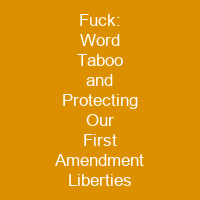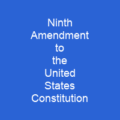Christopher M. Fairman wrote the book as a follow-up to an article he published in 2007 in the Cardozo Law Review. He was motivated to conduct research on the word after learning of a Columbus, Ohio, man who was arrested for using the word in an email to a judge in 2004. He delayed writing the article until he received tenure because he was concerned its publication would adversely affect his professional reputation.
About Fuck: Word Taboo and Protecting Our First Amendment Liberties in brief

He delayed writing the article until he received tenure because he was concerned its publication would adversely affect his professional reputation. The article is 74 pages long, and the word fuck appears over 560 times. He asserts that rather than having a distinct denotation of sexual intercourse, the word’s use is most commonly associated with the power of the word f**k. He explains that those who choose to silence themselves tacitly encourage a process by which speech is forbidden through the process of passivity. He writes that increasing passivity has an impact on the legal process and says these acts are opposed to the First Amendment to the U.S. Constitution.
You want to know more about Fuck: Word Taboo and Protecting Our First Amendment Liberties?
This page is based on the article Fuck: Word Taboo and Protecting Our First Amendment Liberties published in Wikipedia (as of Dec. 03, 2020) and was automatically summarized using artificial intelligence.







